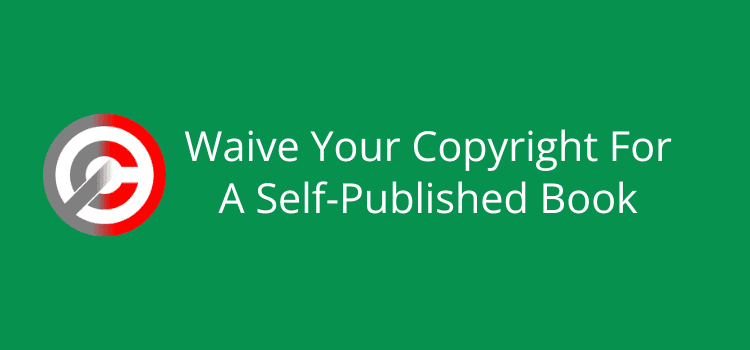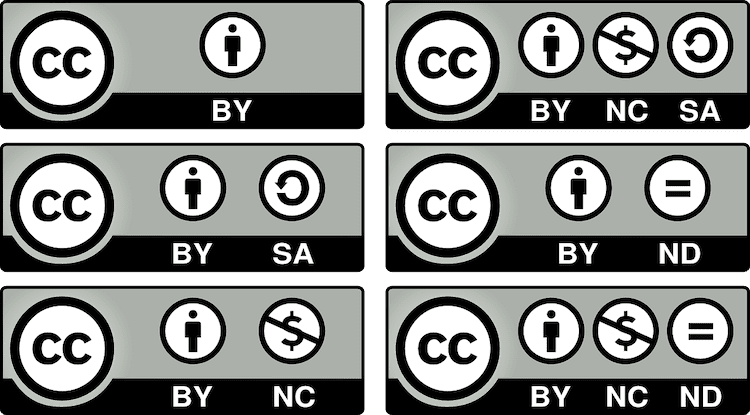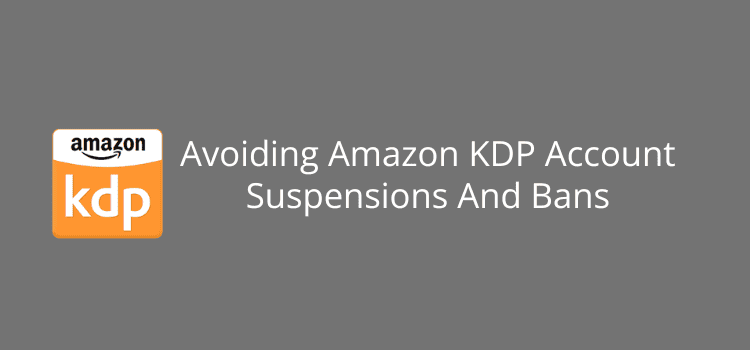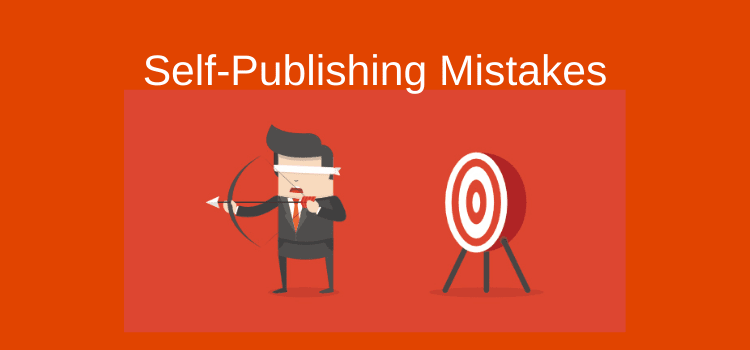
Like most authors, you would never even dream of wanting to waive copyright for your books. However, there are occasional exceptions.
You might choose to release your work into the public domain due to wanting to contribute to education or science, promote a cause or theory, or simply as a means to reach more potential readers.
However, if you’re considering this option for your book, you must understand what giving away your copyright protection really means.
When you waive your exclusive rights, anyone can copy your book in whole or in part, distribute it, adapt it, or even perform it.
What does waiving copyright mean?
Waiving your copyright protection means giving up some or all of your legal rights to control how others may use your work.
Under the laws of most countries, when you create a book, you automatically hold the exclusive rights (copyright) to reproduce, distribute, adapt, and display it as you wish.
But when you waive your copyright protection, you remove those protections. It allows others to use your work freely, sometimes even without credit or seeking your permission.
You can do this by entering your book into the public domain, or partially, by granting broad usage rights with or without your permission.
However, beware that once you waive copyright, such as through a public domain declaration, it’s impossible to take it back.
It’s a permanent decision you make. That opens the door for others to republish, remix, sell, or quote your work without legal consequences.
It might sound risky, which it is. But in some cases, it’s an intentional or strategic decision.
For example, you might want to use copyright waivers to encourage sharing, build a following, or support educational, scientific, or nonprofit activities.
Other authors may view their writing as a gift to the world and want no control over its use.
Whatever your reason, waiving copyright is a serious legal step. Therefore, it’s worth first considering the freedoms and the trade-offs it brings.
How to waive or release copyright
If you decide to waive your copyright for your book, the next step is to make your decision clear, legal, and understandable to others.
But simply stating that you don’t mind if or how people use your book isn’t enough. You have to use wording that removes any possible ambiguity.
One of the easiest and most recognized ways is to dedicate your work to the public domain using a free Creative Commons Zero (CC0) license.
CC0 is a legal statement that clearly states that you waive all your rights to your work worldwide. It allows anyone to use it for any purpose.
You can include this license in the front matter of your book, on your website, or anywhere your work is distributed.
Other Creative Commons licenses give you a little more control. You could use a Creative Commons License CC BY, which allows you to request appropriate credit for your work.
If you would rather not use a Creative Commons license, you can write your own plain-language waiver stating that you release all rights and place the book in the public domain.
However, be aware that homemade waivers written by the author do not carry the same legal strength or recognition internationally. Some countries don’t allow an author to waive their rights fully.
Keep in mind that Creative Commons licences provide legally tested and globally recognized language. That’s why it is often a far better option.

Check with your publisher
One other factor to consider is where and how you publish your book. Some of the more popular self-publishing platforms usually automatically apply copyright to your work unless you specify otherwise in your metadata or front matter.
Because of this, it’s essential that you double-check each platform’s settings and legal policies. You could also contact support to get more accurate advice.
One last tip. You should keep a copy of your original manuscript with its date of creation, even if you’re releasing the rights. It will help prove your authorship if ever needed—even when you’re not enforcing ownership.
Why would you want to waive your copyright?
One typical reason is to support open education or access to knowledge.
Teachers, academics, and some nonfiction authors release books freely to help as many people as possible.
Others might waive rights as part of a larger mission, such as promoting literacy, activism, or community development.
If your priority is not profit, allowing your book to circulate without restrictions can improve its reach.
In some cases, your goal may be to invite collaboration. If you are a poet, artist, or zine creator, you might want your words remixed, quoted, or reimagined by others.
The risks and downsides
The most significant risk is that once you release your rights, you can’t reverse your decision.
That means that someone could repackage your work, sell it for profit, or modify it in ways you don’t like or agree with, and you have no legal way to stop them.
You also give up the right to be credited, unless you specifically request it. Even then, you can’t enforce it in all countries.
Another risk is that your work could be associated with causes, products, or platforms you don’t support.
Another concern is quality control. Someone could make changes to your book and redistribute it under your name, leading to confusion or possibly damaging your reputation.
Waiving copyright isn’t necessarily a mistake. But it’s a move you should take with full awareness of what you’re doing.
Summary
Relinquishing copyright for your self-published book means giving up your exclusive legal rights, usually by dedicating your work to the public domain.
Undoubtedly, most self-publishing authors would never choose this route. However, some may consider doing it as a way to support education, promote a cause, or maximize reach.
If you do this, it’s best to use a Creative Commons license. It helps make your intent clear and legally recognized.
But before you take the step, it’s vital that you fully understand and carefully consider the permanent nature of your decision, the potential for misuse, and the loss of control over how others may use or credit your work.
Please note that the content of this article is of a general nature only and not legal advice. If you need more information, check the copyright laws in your country, or if necessary, seek legal advice.
Related Reading: The Copyright Page For Your Book With A Free Template
Share This Article


